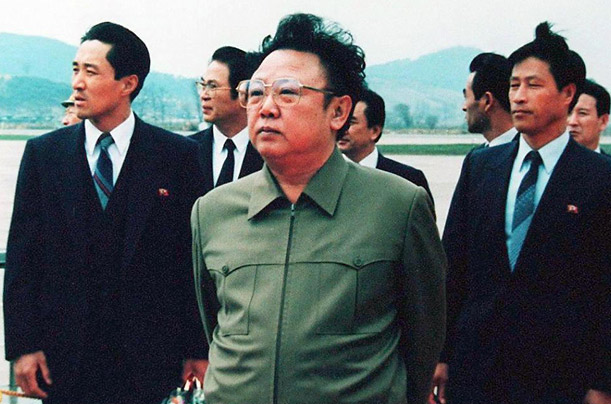
Don Kim and the Good Fellas
The Kim mafia has been in the news quite a bit lately, and every time Kim Jong-Il makes a headline, China gets uncomfortable. Great Leader Kim is somewhat akin to the the late U.S. mafia boss, John Gotti Jr., he makes far too many newspaper headlines, a spotlight that makes his friends uneasy. As North Korea’s primary benefactor, China is the only nation that can force the North to dismantle its nuclear arsenal and return to 6-Party Talks (stalled since Dec. 2008). Although Beijing has recently expressed a desire for 6-Party talks to reconvene as soon as possible, the United States and its allies are not interested in speaking to North Korea unless it shows “good will”. Since China is already aware of this, they are simply posturing. China will not exert significant pressure on the North until the threat of instability on its border is greater than the threat of the presence of American troops on the other side of the Yalu River. China will then be forced to recalculate the utility of supporting the Don Kim.
Contrary to common media depiction, Kim is a rational actor. In fact, when scrutinizing North Korea’s conduct with the supposition that every action it has taken is for the preservation of Kim-family power, it is apparent that even the most provocative actions have been deliberate. America must use a realist approach to exploit these aims, if it wants to end the last great impasses of the Cold War, and the key to any strategy is China.
As Judith Miller has pointed out, “[China] supplies between 80-90 percent of North Korea’s power, 90 percent of its crude oil and all of its diesel fuel. Between 70 and 80 percent of North Korea’s food imports come through China”.
China has two main objectives, a nuclear free Korean peninsula and general stability in the region. This is true, but the Chinese definition of “stability” is specific to its strategic interests. China fears greater sanctions will lead to North Korea’s collapses, which could result in the inundation of the poor industrial rust-belt of Northeastern China (Manchuria) with millions of North Korean refugees. This is especially threatening to China since Changbai (Baekdu in Korean) Mountain is in this region. The area around this mountain has historically been contentious, because Koreans consider it the place of their origin. Further, China does not want a united American-friendly Korea on its border, it already feels the U.S. is trying to encircle it. Recently, Beijing has shown special objection to U.S. – South Korean military exercises in the Yellow Sea, which are a direct response to the North Korea’s recent sinking of South Korean naval vessel Cheonan.
To help ensure that will not happen, to maintain the stability of the Kim Mafia, it appears China has gave approval to Kim Jong-Il’s succession plans. Kim Jong-Un’s (27), Don Kim’s youngest son, might now be a “made man“, the “Boss In-Training”. Although it is still unclear if Kim Jong-Un can maintain his legitimacy after his father dies inside South Korea, most of the aid flow from China is filtered through the Kim Family, and then distributed to the centers of North Korean power, the Workers’ Party, the bureaucracy, and the armed forces. Kim Jong-Un, now having achieved Chinese favor, will have more than a “fighting-chance”.
Further, China just bailed out North Korea, again, preventing financial insolvency. In fact, it appears that China is expanding trade and investment with North Korea, solidifying itself in several markets, as the North liberalizes some trade policies (only with China).
So what does all this mean for the future of 6-party talks, nuclear disarmament, and U.S. – Sino relations? Stay tuned for Part II.